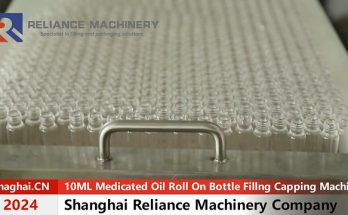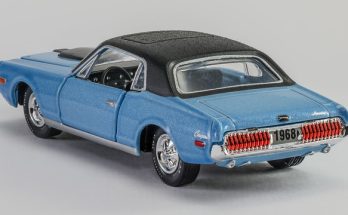KONIX Aluminum Foil Container Mould
An aluminum foil container mould is a specialized tool used in the manufacture of aluminum foil containers. These machines can produce a large number of containers quickly and efficiently. They are available in a wide range of sizes and dimensions, corresponding to usages and applications.
These machines work at a very fast rate, and they can increase production capacity without the need for additional laborers. They are also highly efficient, and they make it easy to create consistent products.
High Precision
The aluminium foil container mould KONIX offers has a high accuracy and processing performance. Its dimensional stability is better than that of other similar moulds. Its ductility allows it to be formed into various shapes for packaging. It also has a dense oxide layer, making it resistant to acid and other harmful substances. Its permeability is low, and it meets national food hygiene standards.
Its hygienic properties are essential for pharmaceuticals and healthcare packaging. Its tamper-evident features ensure compliance with strict quality and safety standards, boosting consumer confidence and market credibility. The industry is being re-shaped by increasing corporate and consumer awareness of environmental, social and governance (ESG) issues in packaging.
Aluminium foil surfaces exemplify weight optimization, offering a discernible reduction in product mass and concomitant conveyance costs. This translates into a potent avenue for rationalizing logistical endeavours and streamlining fiscal outlays in a business milieu characterized by escalated shipping tariffs.
As a non-toxic and recyclable material, aluminium foil is an astute preference for enhancing business competitiveness. Its diminished thickness enables an unparalleled balance of functionality aluminum foil container mould and lightweightness, a crucial feature in today’s resurgent commercial landscape. Moreover, the energy required to manufacture aluminium is captured and conserved in metal, rather than in greenhouse gases or other forms of waste. This is a significant contribution to sustainable development and green economy.
Wide Range of Applications
Unlike traditional plastic and Styrofoam packaging, aluminum foil containers can protect your food from a wide range of microbes that may cause serious health issues. These containers are waterproof and non-porous, preventing the growth of dangerous bacteria and mold that can contaminate your food. Additionally, they are resistant to heat, ensuring that your food will remain warm and safe until you’re ready to serve it.
Because of their versatility, aluminum foil trays are often used in commercial kitchens and restaurants. They are ideal for storing foods that can be stored in the freezer and oven, such as meats, cheeses, soups, and sauces. Their durable material is also lightweight, making it easy to carry and store.
Additionally, aluminum foil trays are multi-use, which reduces waste and saves money over time. They can also be washed in the dishwasher, which is much easier than washing Styrofoam and most plastic containers by hand.
For the production of aluminum foil containers, Chal Aluminium uses special pressing oil made from refined hydrotreated narrow distillate base oil and environment-friendly lubricants and pressure agents. This special oil ensures good lubrication and cooling, protecting the aluminum foil from surface damage, protecting stamping equipment and moulds, and reducing environmental pollution.
Long Lifespan
Aluminum foil containers are dependable and suitable for a wide range of foods. They can aid in sanitizing food and shield it from pollutants like mold and germs. They can also prevent spoilage. This is especially important in light of the recent rise in food-borne illnesses.
An aluminum container mould is a specialized tool that shapes and forms the aluminum foil into specific container shapes, such as trays or pans. It is usually designed to be as precise as possible, resulting in an accurate and reliable product. An effective way to prolong the lifespan of your mold is by using a lubricating agent that can protect it from excessive wear and tear.
The overall quality of a mold’s design plays a major role in its longevity, as it can minimize the amount of wear and tear. Moreover, the materials and conditions under which the mold operates can significantly impact its durability.
The best way to ensure your injection mold’s lifespan is through routine maintenance, including cleaning and lubrication. In addition, storing the mold in a controlled environment can help keep it clean and prevent rust and degradation. A regular schedule of inspections can also reduce the risk of problems and allow you to address issues before they become serious. Finally, rotating the molds and not overusing a single one can distribute wear evenly and extend its lifespan.
Customization
If you want to add a personalized touch to your packaging, consider using aluminum foil container moulds. They are ideal for creating custom shaped trays, pans, and dishes that will be perfect for your food product. They have high precision and can be made with a wide range aluminium foil box making machine of dimensions and shapes. They also come with a long lifespan and are suited for a variety of applications.
They are easy to recycle, meet national hygiene standards, and are non-toxic. They are also very popular for storing food because of their durability and excellent fragrance retention. They are also very easy to clean, and can withstand temperatures of up to 121 degrees Celsius. These characteristics make them a great alternative to plastic tableware, which can contain harmful substances that can harm human health.
The molds are designed based on customer’s requirements. They can be single-cavity, multi-cavity and different rims. They can also be printed with your preferred logos upon request. The moulds are made of high-quality materials and are equipped with a number of features that improve production efficiency. They are produced with a precise shear, guide pillars and cylinders, slow wire cutting processing, precision surface grinding, and crimping grooves. All of these elements ensure the highest quality of finished products and the longest possible service life.

